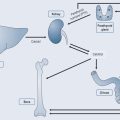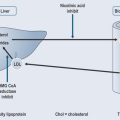Chapter 42 Information gathering and the final analysis
Professional Journals
How is it Possible to make Sense of the Information Available and Place it in a Clinical Setting?
• Evidence-Based Medicine
General Questions to be Asked of an Evidence-Based Paper
Both the Critical Appraisal Skills Programme (CASP) and the Scottish Intercollegiate Guidelines Network (SIGN 50) have more detailed work sheets for critical appraisal (p. 347).
• Scientific Experiments
Types of Paper
• Systematic Reviews or Meta-Analyses
• Randomized Controlled Trials (RCTs)
• Cohort Studies
Websites
UK Portals
Reviews of Healthcare Papers
Online Formularies
US Portals
Gateways
Evidence-Based Medicine
• Australia
• Canada
• New Zealand
Tools for Performing Analysis on Evidence-Based Medicine
Bibliography on Evidence-Based Medicine
Greenhalgh (1997) Greenhalgh T. How to read a paper: getting your bearings (deciding what a paper is about). British Medical Journal. 1997;315:243-246. Online. Available: http://www.bmj.com/cgi/content/full/315/7102/243
Greenhalgh (1997) Greenhalgh T. How to read a paper: assessing the methodological quality of published papers. British Medical Journal. 1997;315:305-308. Online. Available: http://www.bmj.com/cgi/content/full/315/7103/305
Greenhalgh (1997) Greenhalgh T. How to read a paper: papers that summarise other papers (systematic reviews and meta-analyses). British Medical Journal 1997;. 1997;315:672-675. Online. Available: http://www.bmj.com/cgi/content/full/315/7109/672
Greenhalgh (1997) Greenhalgh T. How to read a paper: statistics for the non-statistician. I: different types of data need different statistical tests. British Medical Journal 1997;. 1997;315:364-366. Online. Available: http://www.bmj.com/cgi/content/full/315/7104/364
Greenhalgh (1997) Greenhalgh T. How to read a paper: statistics for the non-statistician. II: ‘Significant’ relations and their pitfalls. British Medical Journal. 1997;315:422-425. Online. Available: http://www.bmj.com/cgi/content/full/315/7105/422







